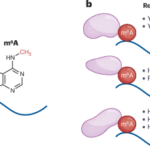We’re used to thinking of ageing as a slow, inevitable breakdown — grey hairs, tired muscles, and a metabolism that just won’t cooperate anymore. But recent research suggests that ageing may not simply be a passive decline. Instead, your brain might be actively managing the ageing process, making complex decisions about how to allocate the body’s energy as damage builds up with time.
In a surprising twist, a new theory known as the brain–body energy-conservation model suggests that the brain, when confronted with ageing or damaged cells, starts shifting resources away from functions it deems less essential. This could explain why we lose muscle mass, experience reduced fertility, or suffer cognitive decline as we get older. It’s not just wear and tear — it might be a strategic reallocation of limited energy.
The Strange Case of the Energy-Hungry Zombie Cells
One of the central players in this story is the senescent cell, often dubbed the “zombie cell.” These are old cells that have stopped dividing but refuse to die. For years, researchers assumed they were biologically inert — burned-out cells just hanging around.
But that assumption has been flipped on its head.
In an unpublished study by researchers at Columbia University, led by psychobiologist Martin Picard, skin cells grown in the lab showed that senescent cells burn twice as much energy as younger, dividing ones. This finding shocked scientists, as these cells were expected to consume less, not more.
What’s driving this energy demand? These zombie cells accumulate DNA damage, release inflammatory signals, and become energy hogs. This creates a paradox: ageing bodies use less energy overall, but some individual cells demand more. To resolve this tension, the brain may step in, rationing the body’s energy — sacrificing some tissues to save others.
Stress: The Silent Accelerant
Psychological stress, it turns out, could be a key trigger in this brain-body negotiation.
As far back as the early 2000s, researchers including Elissa Epel from the University of California, San Francisco, found that women who endured chronic caregiving stress had shorter telomeres — protective caps on the ends of chromosomes that naturally shrink as we age. Short telomeres are strongly associated with senescence and disease.
Since then, similar effects have been observed in people exposed to childhood trauma, burnout, or long-term anxiety. Even our epigenome — the chemical layer that regulates gene expression — appears to carry the scars of prolonged stress.
In women, high levels of the stress hormone cortisol have been linked to reduced DNA methylation (a protective mechanism) and increased activation of inflammation-related genes, such as TNF.
Social Status, Stress, and the Immune System
The link between stress and ageing doesn’t stop at humans. Animal studies are offering insight into how social environment affects biology.
In rodents and rhesus macaques, being low in the social hierarchy correlates with higher stress levels and molecular signs of accelerated ageing, including increased cellular inflammation and damage. In one 2024 study, male mice exposed to early-life social stress showed a spike in p16, a marker of cellular senescence, across their brain, fat, and immune tissues.
Even more fascinating: when monkeys were shifted to higher social ranks, the ageing-related gene expression in their immune cells reversed. Status, and the stress that comes with it, may have a direct and reversible effect on how we age.
The Brain’s Molecular Messenger
Enter GDF15 — a lesser-known molecule now gaining attention. This cytokine, or cellular messenger, seems to surge in response to both psychological and cellular stress. Though it’s produced by many organs, its receptor is found only in the brain. That makes it a prime suspect in the communication between body and brain in the context of ageing.
In a recent study from Picard’s group, GDF15 levels spiked in saliva and blood samples taken from stressed humans. The idea? GDF15 may be one of the messengers telling the brain that parts of the body are struggling — prompting a reallocation of resources that speeds up the signs of ageing elsewhere.
Can We Slow the Clock?
If stress accelerates ageing, could reducing stress slow it down?
That’s the hope. Exercise, for instance, has been shown to mitigate telomere shortening and improve overall resilience to stress. Epel and others are studying behavioral interventions — like mindfulness, physical activity, and social connection — that could literally slow the biological clock.
This could also change how we evaluate new anti-ageing drugs. If stress is a hidden accelerant, clinical trials might need to account for participants’ mental health as much as their biomarkers.
A Complex Equation
There’s no silver bullet for ageing. Telomeres, epigenetics, zombie cells, GDF15 — all these pieces interact in ways we’re just beginning to understand. As Epel puts it: “Biology is not that simple.”
Still, one thing is becoming clear: your brain is not a passive observer in the ageing process. It’s an active manager — and possibly the master conductor — deciding what’s essential and what can wait, based on signals from your body and your life experiences.
That means taking care of your mental well-being isn’t just good for your mood — it might be the most powerful anti-ageing tool you have.











